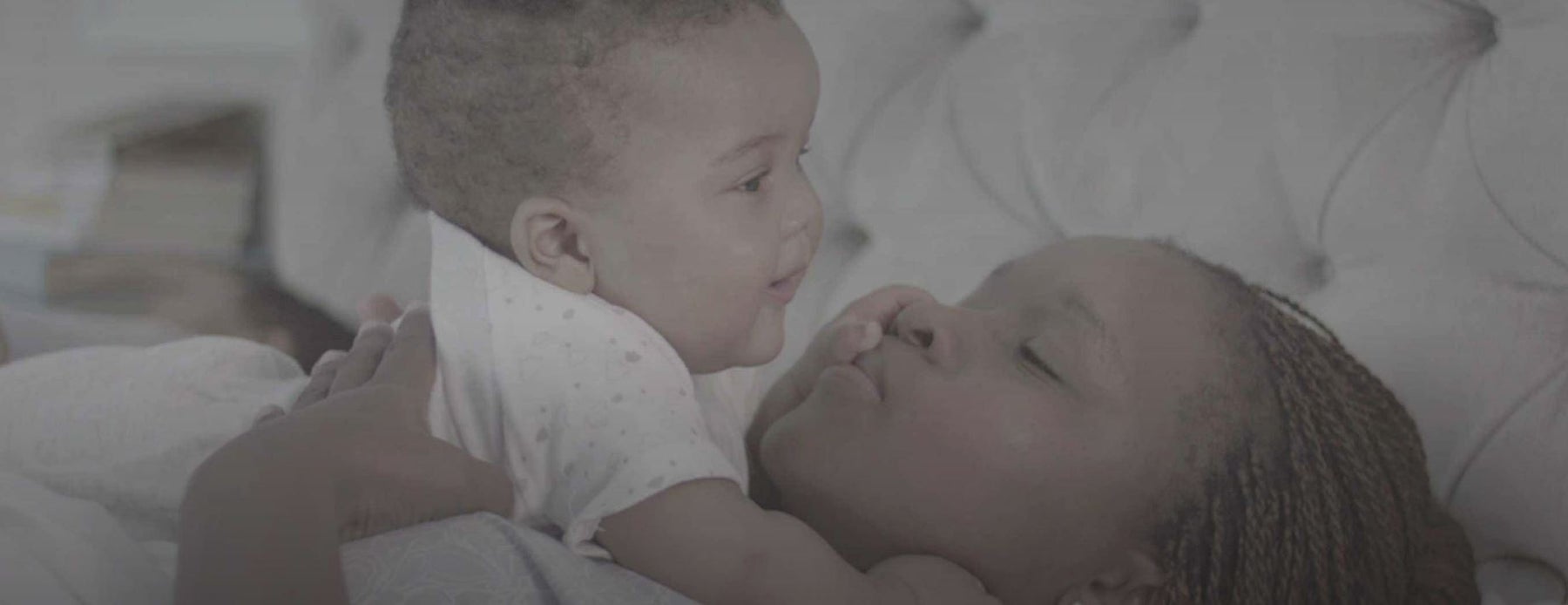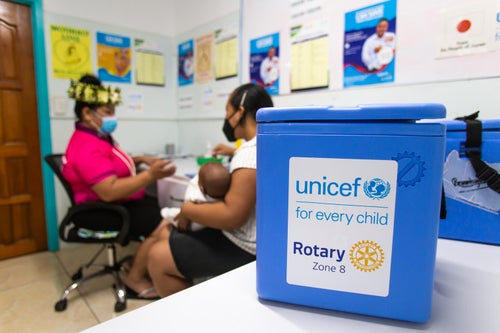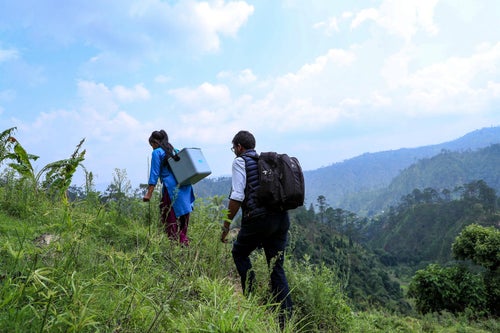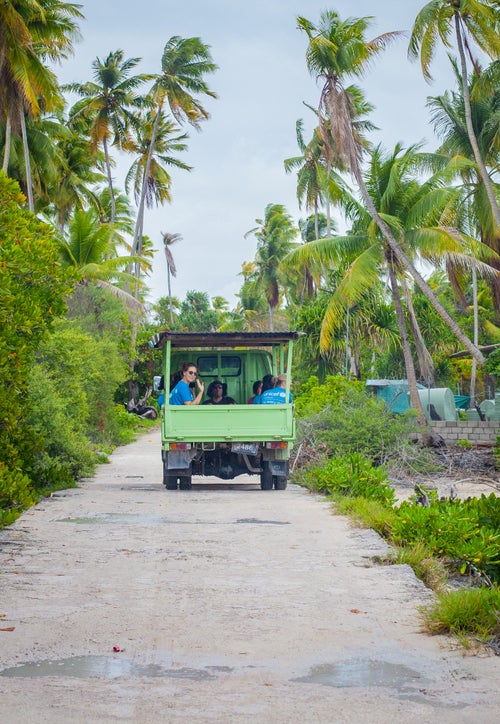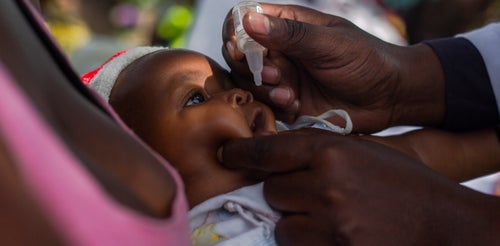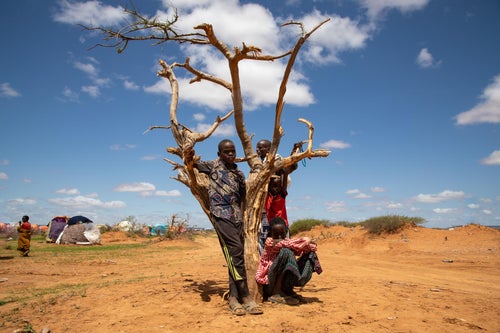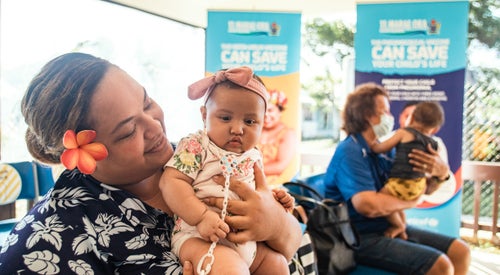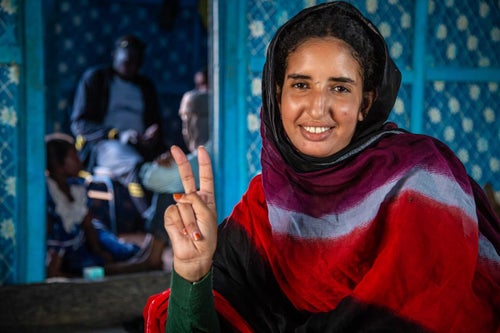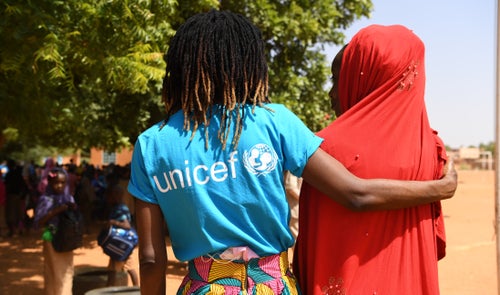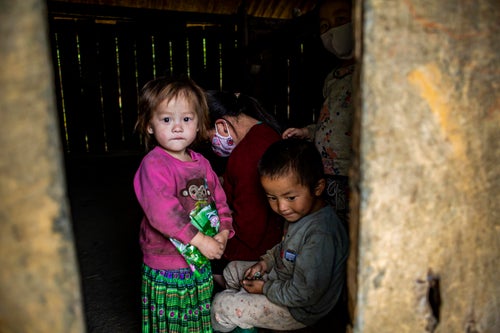When we first posted this little film, it struck a chord with parents across Australia. The simple story of childhood vaccination stirred up thousands of passionate comments and more than a million views. See what all the fuss is about.
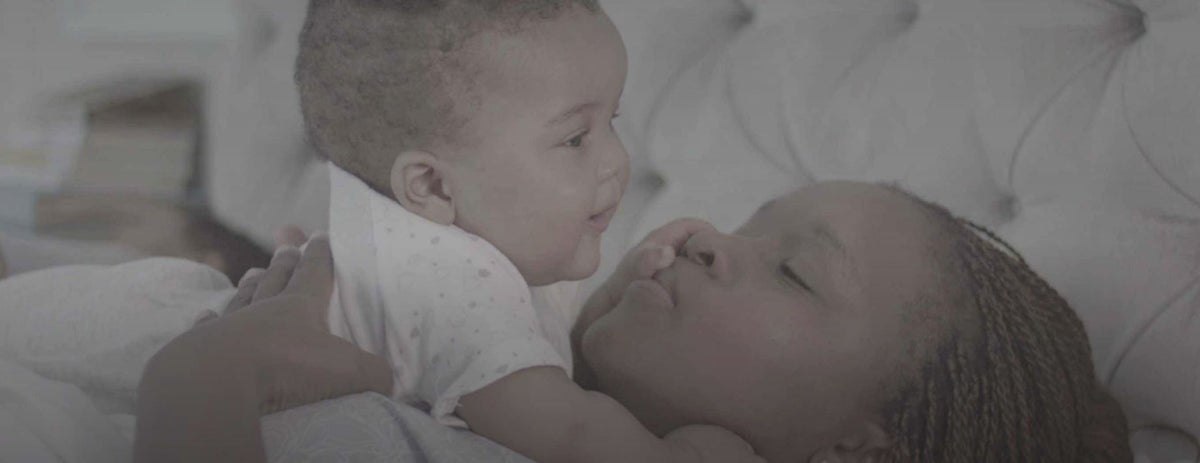
A tale of two mothers
Unfortunately, this story is shockingly common. Many parents like the mother in this video desperately want to protect their little ones from deadly diseases. Conflict, weak health systems and poverty means that they just can't.
The coronavirus pandemic has made a challenging situation even worse – disrupting the delivery of immunisation services and denying children a fair chance at a healthy future. The year before the pandemic hit, nearly 14 million children missed out on life-saving vaccinations.
Donate to UNICEF Australia
Protect the rights and wellbeing of every child by donating to UNICEF Australia today.
Every year UNICEF reaches almost half of the world’s children with life-saving vaccines. We deliver vaccines to children, no matter who they are or where they live.
We're changing the story and helping more children survive and thrive into adulthood.
Children like Christine in South Sudan.
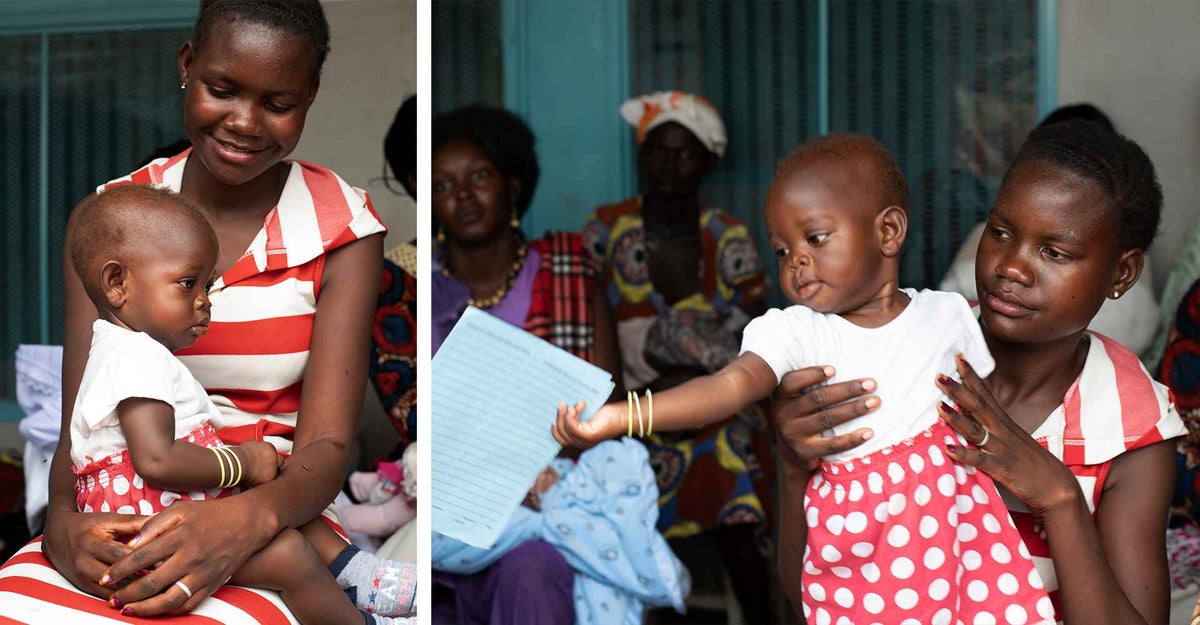
Joyce has brought her nine-month-old daughter to a health centre to receive her measles vaccines.
“Christine is a very active and healthy girl, I’m blessed. She is my only one, so I listen to what health workers are saying I should do,” she says.
In recent years, South Sudan has been battling a measles outbreak due to low vaccination rates, conflict, lack of information and misconceptions.
With support from people like you, UNICEF and partners were able to protect 2.5 million children against measles across the country last year. But more help is needed to continue this life-saving work.
Related articles
Stay up-to-date on UNICEF's work in Australia and around the world



